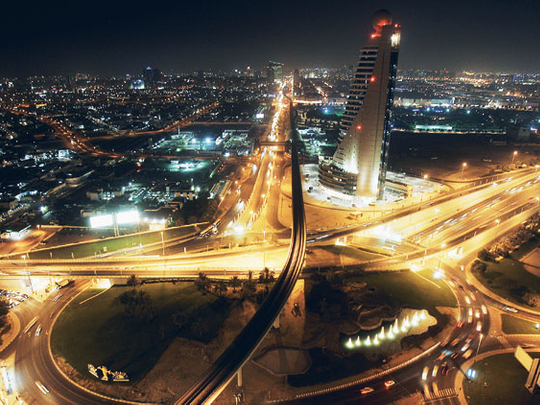
Muscat : The UAE, with a score of 5.12 and a global rank of 16th, has topped the Gulf list in the latest Global Enabling Trade Report, released yesterday by The World Economic Forum with local partners, the International Research Foundation and Arabian Research Bureau LLC.
The report has ranked 125 countries according to the barriers to trade that countries have in place as well as the factors that encourage trade.
Amongst GCC countries Oman ranked third in the region with a score of 4.71 and a global ranking of 29th, up from 34th in 2009, the largest improvement in ranking of all the GCC countries.
The best performing GCC country was the UAE with a score of 5.12 and a global rank of 16th, followed by Bahrain with 4.95, global rank of 24th. Qatar had a score of 4.68 and a global rank of 34th. Saudi Arabia with 4.54 and a global rank of 40th.
Kuwait was at the bottom of the GCC table with 4.01 and a global rank of 65th and was the only GCC country to drop in rank since 2009 when it ranked 59th.
East Asian economies Singapore and Hong Kong continue to occupy the top two positions in the Enabling Trade Index ranking.
They are followed by Denmark, Sweden and Switzerland with New Zealand behind in sixth place, moving up five ranks since 2009.
The other countries that make up the top 10 are Norway, Canada, Luxembourg and the Netherlands.
Iceland entered the index for the first time this year and debuted at 11th place while Finland dropped out of the top 10 to 12th place.
Out of the large economies, Germany was the best performer at 13th place, ahead of the United States, which dropped by three places to 19th.
China (48th) and Brazil (87th) remain stable, while Turkey (62nd), India (84th) and Russia (114th) drop in the ranking.
2010's results mirror the resilience against the threat of protectionism during the economic crisis.
International agreements such the WTO framework and pledges by the G20 have contributed to limiting the effect of protectionist pressures on trade barriers. Despite fears of rising protectionism, the report confirmed that a large majority of countries did not raise trade barriers.
"Vietnam realised one of the biggest improvements in the ranking this year, climbing by 18 places to the 71st position," said Margareta Drzeniek Hanouz, Senior Economist of the Global Competitiveness Network and co-editor of the report.
The country's accession to the WTO in 2007 supported this move, as tariffs were lowered and the country's exporters gained better access to markets of other members.
"Countries such as Ukraine and Mauritius have lowered tariffs, while Russia's markets are the most protected among the countries assessed," she said.
The Global Enabling Trade Report 2010 is launched at a time when trade volumes recover from the deepest post-war slump.
By identifying the obstacles to and promoters of trade across countries, the report could contribute to strengthening the recovery.
As countries encouraged trade, they also provided benefits to their trade partners, thereby supporting economic growth.
"Just as trade was a key force spreading the growth slowdown internationally, so can trade be an important driver in diffusing the benefits of recovery across the globe," said Robert Z. Lawrence, of Trade and Investment at the John F. Kennedy School of Government at Harvard University in the US.
Professor Lawrence is also academic adviser and co-editor of the report.
Published for the third year in a row and covering 125 economies, the report aims to provide a resource for dialogue and a yardstick for the extent to which economies are able to trade.












